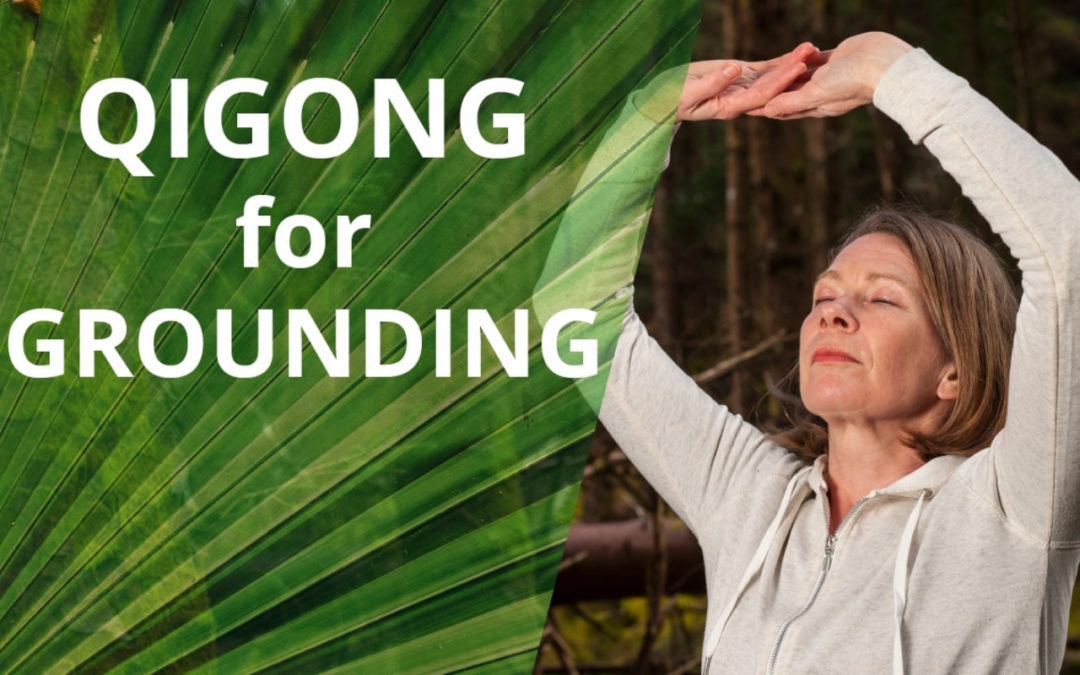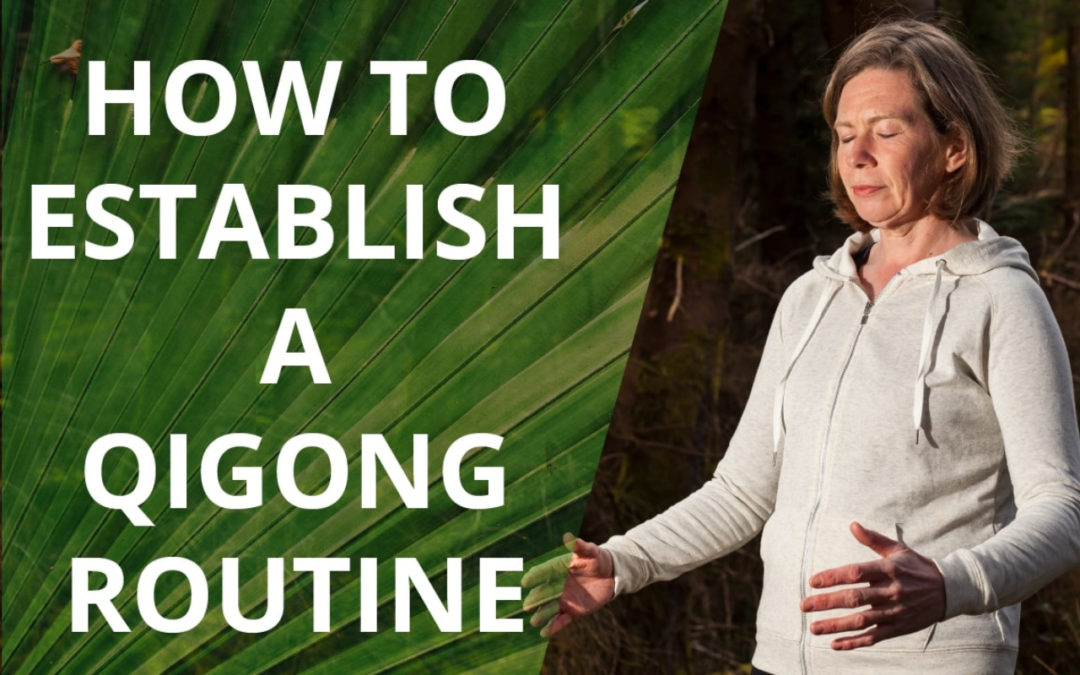
by janicetucker | 28 Feb 2018 | Qigong, Qigong & Emotional Issues, Qigong Routines
“Do you ever get angry?”
“No.”
“What, never?”
“No.”
“I don’t believe you!”
Over the past 18 years or so this has been a fairly common exchange between myself and my clients in the acupuncture clinic. The reason I don’t believe people who say they never get angry is that everyone does. The difference is that some people express it by shouting and screaming and some people bottle it up in the form of frustration, silent resentment or sulking. In the video today I’m going to share with you how to use Qigong for anger management, more specifically, for getting rid of anger in a healthy way.
Janice Tucker is a practitioner of Traditional Chinese Medicine and Medical Qigong, and the founder of the Space To Relax online programme of Qigong video lessons.
Please don’t forget to subscribe to my YouTube channel by clicking the red “Subscribe” button on if you are watching over there. That way you won’t miss my regular videos which are full of useful health enhancing tips. These videos will help you to improve your health and prevent illness from arising in the first place. Also please give this video a “Like” if you found it informative.
How Does Anger Affect Us?
Anger is the emotion associated with the “Liver” organ system in Qigong. The Liver system is responsible for the smooth flow of Qi on all levels (physical, mental, spiritual, emotional). If anger is excessive it impacts on the healthy functioning of the Liver system which can result in many health problems such as:
• feeling a lump in the throat;
• abdominal distension;
• eye problems;
• tendon stiffness and inflexibility;
• digestive issues;
• pre-menstrual tension in women;
• lumps in the breasts or breast tenderness in women;
• tinnitus;
• headaches;
• brittle nails;
• muscle cramps and spasms;
• lack of direction and organisation in life.
As you can see it’s not a good thing to be experience and out of balance Liver system!
The Solution – Qigong For Anger
Qigong for anger management is perfect as the methods in general encourage your mind to be calm and relaxed, the very opposite of anger! However there are a couple of methods which are particularly useful to help you regulate anger more specifically.
1. Ba Duan Jin Exercise
This is one exercise from an 8 part series of Qigong exercises called the Ba Duan Jin or 8 Pieces of Brocade. It’s a very famous series of Qigong exercises and this particular one is a perfect method of Qigong for anger because it helps the Liver system. It thereby helps to combat the damaging effects of anger your body and mind.
This movement is called “Open Eyes Wide With Clenched Fists”. The position for this Qigong exercise is a horse stance. Step out into a horse stance that is comfortable for you, as wide or as narrow as you want. Check that the knees are not dropping inwards and are pushed out over the toes. Tuck the pelvis in under your body to make the lower back flat. Both hands rest on the hips, with loose fists and the palms facing upwards. The chest is pulled back slightly and you are nice and tall, with length in the back of the neck.
Women begin with the right hand and men with the left hand. Move the first hand out in front of you with a gentle punching action and as you extend it, at the end, twist the arm so the back of the hand ends up facing uppermost. Bring the fist back, turning the palm upwards as you draw it back in. Repeat with the other arm, extending the arm outwards and looking at the fist. Pull the arm back, twisting it back into the starting position on the hip.
The movement for this punching action actually comes from your hips. You need to twist in the whole body as you make the punching action, looking at the fist. The movement of the hip then draws the punch back. The hip turns and pushes the arm out. Look the fist. The hip then turns, drawing the arm back in towards the body.
Breathing
Breathe in before you begin. Exhale as you punch. Breathe in as you draw the arm back to the hip.
In this method you pick one thing that you want to release from your body or mind. In this case pick the emotion of anger and breathe it out using the technique shown in the video.
3. Practice any moving Qigong exercise.
Moving Qigong methods promote the smooth flow of Qi and thereby help to disperse the emotion of anger.
What Do I Do Next?
If you would like to start using Qigong for anger then:
1. Head over to my Space To Relax homepage. There you can sign up for a free 3 part video series of Qigong lessons. Lesson 1 will teach you how to breathe more efficiently and calm your mind with Abdominal Breathing. Lesson 2 is the perfect moving Qigong exercise to perform and promote the smooth flow of Qi. In Lesson 3 you will learn how to rid waste Qi (in this case in the form of anger) from your body.
2. Subscribe to my YouTube channel by clicking the red “Subscribe” button. That way you won’t miss my regular videos which are full of useful health enhancing tips. Also please give this video a “Like” and share with me in the comments box what you do to help dispel anger in a healthy way.
3. Join my free Facebook group, “Space To Relax Free Group” and leave any comments or questions for me there. I’ll be happy to answer them. Also, by joining this group, you will receive regular posts of Qigong articles and videos with really useful tips about how to use Qigong to improve your state of health.
home

by janicetucker | 22 Feb 2018 | Qigong, Qigong & Emotional Issues, Qigong Routines
Wouldn’t it be fantastic if we could all live our lives in a state of feeling grounded, centred and like nothing could throw us off course? Many of us feel exactly the opposite of that most of the time. We suffer from constant mental chatter, anxiety and stress! In the video on this page I’m going to show you how you can use Qigong for grounding. When you can do this you can sail more smoothly through life and it’s daily challenges without been thrown off course. You’ll remain calm, relaxed and focused, even when people around you seem to be losing the plot!
Janice Tucker is a practitioner of Traditional Chinese Medicine and Medical Qigong. She is also the founder of the Space To Relax online programme of Qigong video lessons.
Please don’t forget to subscribe to my YouTube channel by clicking the red “Subscribe” button across on Youtube. That way you won’t miss my regular videos which are full of useful health enhancing tips. These videos will help you to enhance your health and prevent illness from arising in the first place. Also please give this video a “Like” if you found it informative.
What Does It Mean To Be “Grounded”?
Mindbodygreen.com published an article on grounding and wrote:
“Being grounded is an essential skill for empaths and highly sensitive people who pick up emotions from the people and environment around them. It means that you’re present in your body and connected with the earth, allowing you to feel centred and balanced no matter what’s going on around you.
If you aren’t grounded, you’re like a leaf in the wind: very vulnerable and thrown off balance very quickly. But when you are well grounded, you are like a big, strong tree. If something happens around you, it doesn’t influence you so much and you are able to feel much more peaceful and balanced in your daily life.”
For the whole article click here.
The Solution – Qigong For Grounding
Qigong methods in general are perfect grounding exercises for us as they encourage you to be present in your body and connected with the earth and nature. However there are a couple of methods which are particularly useful to get you started on your journey to feeling more grounded.
1. Breathing. Make sure that you are breathing efficiently. Qigong has the perfect solution to this as it requires us to pay conscious attention to our breath. Breathing usually takes the form of what is called “Abdominal Breathing” (as you breathe in your belly expands and as you breathe out your belly shrinks) which is extremely relaxing. This simple method alone will help you to feel more grounded, especially if you practice outside in a pleasant environment like woodland, a park or the beach.
2. Watch my previous video, “Getting Rid of the Negative With Qigong Breathing Exercises“.This is an excellent method to bring you into the present using your mind and your breath.
3. Practice a moving Qigong exercise where you have to pay attention to your movements. This will again bring you into the present and help to develop a feeling of being grounded. The more you practice the more that you will experience this feeling even when you’re not practising!
What Do I Do Next?
If you would like to start using Qigong for grounding then:
1. Head over to my Space To Relax homepage. There you can sign up for a free 3 part video series of Qigong lessons. Lesson 1 will teach you how to breathe more efficiently with Abdominal Breathing. The perfect moving Qigong exercise to perform and bring you into the present is lesson 2. Lesson 3 will teach you how to rid waste Qi (energy) from your body and feel a closer connection with the earth.
2. Subscribe to my YouTube channel by clicking the red “Subscribe” button. That way you won’t miss my regular videos which are full of useful health enhancing tips. Also please give this video a “Like” and share with me in the comments box what you do to help you feel more grounded.
3. Join my free Facebook group, “Space To Relax Free Group” and leave any comments or questions for me there. I’ll be happy to answer them. Also, by joining this group, you will receive regular posts of Qigong articles and videos with really useful tips about how to use Qigong to improve your state of health.
home

by janicetucker | 14 Feb 2018 | Qigong, Qigong Routines
How amazing would it feel to be like one of the action or super heroes we see in films and TV? When you look at them you can sense their seemingly overflowing and abundant levels of energy. It’s as though they are bursting with it! Wouldn’t you like to feel like that? Unfortunately this is not the case for many of us mere mortals! More commonly we struggle with lack of energy (or total exhaustion). We have little or no motivation, feelings of stagnation or not moving forward with our lives. Often we have no energy to complete the simplest daily tasks. Thankfully we can use simple methods of Qigong for energy!
The consequences of low energy levels can have a huge impact on our lives. One person told me, “I feel like I’m not living life to its full potential”. Hopefully you are not feeling so exhausted that you are thinking these kinds of thoughts. However, if you are, or if you simply need a bit of an energy boost (and who doesn’t?) then the video on this page will help you. I’m going to show you how to use Qigong for energy so that you can at least go some way to feeling like Superman or Wonder Woman! 🙂
Janice Tucker is a practitioner of Traditional Chinese Medicine and Medical Qigong, and the founder of the Space To Relax online programme of Qigong video lessons.
Please don’t forget to subscribe to my YouTube channel by clicking the red “Subscribe” button. That way you won’t miss my regular videos which are full of useful health enhancing tips. These videos will also help you to prevent illness from arising in the first place. Also please give this video a “Like” if you found it informative.
Why Do So Many Of Us Struggle With Low Energy Levels and Exhaustion?
Many factors affect the levels of Qi (energy) in our bodies. Our main sources of Qi come from:
- What we inherit from our parents (our “constitution” if you want to think of it like that);
- The amount and quality of air that we breathe;
- The amount and quality of food and drink that we ingest.
Our Qi can also be depleted in many ways. Too little sleep, stress, smoking, drinking alcohol, excessive exercise, excessive sex and many other pressures can easily leave us exhausted.
So what can we do about minimising our energy loss?
The Solution – Qigong For Energy
We cannot change what we have inherited from our parents in terms of our basic constitution. However we can do lots of things to improve the quality of air that we breathe, the efficiency of each breath and the types of food and drink we consume.
- Breathing. Make sure that you are breathing efficiently. Qigong has the perfect solution to this as it requires us to pay conscious attention to our breath. Breathing usually takes the form of what is called “Abdominal Breathing” (as you breathe in your belly expands and as you breathe out your belly shrinks) which is also extremely relaxing. This is a much more efficient way of breathing than “chest breathing” which most of us do. Abdominal breathing makes use of the diaphragm which pushes down as you inhale and increases your lung capacity. You are therefore taking in more air (good quality Qi) per breath which in turn gives you more energy.
- Food and Drink. Eating fresh, locally grown, organic if possible food will go a long way to improving your energy levels. Also, if you are someone who is lacking in energy and also feels cold a lot of the time, or if you suffer with digestive issues, then it is important to avoid cold, raw foods and eat warm, cooked food. This means you will not to put too much stress on your system by wasting energy digesting food that has not already been partially broken down by the cooking process.
- Rid Waste Qi (energy). Getting rid of waste Qi which we may have accumulated through stress, drinking alcohol, smoking, eating junk food etc. is important as waste Qi circulating in the body can leave us feeling exhausted. There are excellent methods in Qigong for the removal or “Discharge” of waste Qi (see below and also my previous blog on “Qigong for Cleansing“).
What Do I Do Next?
If you would like to start using Qigong for energy then:
- Head over to my Space To Relax homepage. There you can sign up for a free 3 part video series of Qigong lessons. Lesson 1 will teach you how to breathe more efficiently with Abdominal Breathing. Lesson 2 is the perfect Qigong exercise to perform if you are feeling tired as it will give your energy levels a real lift! In Lesson 3 you will learn how to rid waste Qi.
- Subscribe to my YouTube channel by clicking the red “Subscribe” button. That way you won’t miss my regular videos which are full of useful health enhancing tips. Also please give this video a “Like” and share with me in the comments box what you do in your life to rid exhaustion and gain energy.
- Join my free Facebook group, “Space To Relax Free Group” and leave any comments or questions for me there. I’ll be happy to answer them. Also, by joining this group, you will receive regular posts of Qigong articles and videos with really useful tips about how to use Qigong to improve your state of health.
- Go to my previous video on “Qigong for Tiredness and Exhaustion“.
home

by janicetucker | 7 Feb 2018 | Qigong, Qigong & Emotional Issues, Qigong Meditations & Breathing, Qigong Routines
One of the most common complaints I hear in my acupuncture clinic is that of insomnia and poor sleep. The subject of today’s post is how to use Qigong for insomnia and sleep difficulties.
Clients in my acupuncture clinic often say to me:
“I’m not sleeping as I’m too stressed”,
“I have difficulty getting off to sleep and then feel exhausted”,
“My thoughts play over and over in my head which stops me from sleeping”,
“I wake up at 3 am and then can’t get back to sleep as my mind is too busy”.
Sound familiar? If so then this video will show you how to use Qigong for insomnia and sleep difficulties. With a little practice you will soon notice an improvement in your sleep and therefore your energy levels the next day!
Janice Tucker is a practitioner of Traditional Chinese Medicine and Medical Qigong, and the founder of the Space To Relax online programme of Qigong video lessons.
Please don’t forget to subscribe to my YouTube channel by clicking the red “Subscribe” button. That way you won’t miss my regular videos which are full of useful health enhancing tips. These videos will help you to enhance your health and prevent illness from arising in the first place. Also please give this video a “Like” if you found it informative.
The Problem – Why Do We Suffer From Insomnia?
In terms of Traditional Chinese Medicine it is only possible for us to experience full and restful sleep when our mind is calm. A calm and peaceful mind is essential for calm and peaceful sleep. If our minds are too busy then we will find it difficult to sleep, no matter how exhausted we are going to bed.
The Solution – Qigong For Insomnia and Sleep Difficulties
One of the main benefits of Qigong practice is that it helps to calm and clear our minds. Qigong brings us into the present and allows us to focus clearly on what we are doing. Many of the physical exercises in Qigong are extremely relaxing so this in turn helps to calm our mind.
Qigong also requires us to pay conscious attention to our breath. Breathing usually takes the form of what is called “Abdominal Breathing”. During this method, as you breathe in your belly expands and as you breathe out your belly shrinks and this is extremely relaxing.
The key to using Qigong for insomnia is to perform exercises which calm your mind, especially before bed. It’s as simple as that. The more you practice these exercises, the better quality and quantity of sleep your will enjoy!
What Do I Do Next?
If you would like to start using Qigong for insomnia then:
- Head over to my Space To Relax homepage. Scroll to the bottom of the homepage to sign up for a free audio meditation called “Calm Your Busy Mind in 8 Minutes“. This is the perfect breathing and visualisation method to help you to sleep better. On the homepage you can also sign up for a free 3 part video series of Qigong lessons. This will take you even further towards calming and clearing your mind so that you can enjoy peaceful sleep.
- Subscribe to my YouTube channel by clicking the red “Subscribe” button. That way you won’t miss my regular videos which are full of useful health enhancing tips. Also please give this video a “Like” and share with me in the comments box what you do to get off to sleep at night.
- Join my free Facebook group, “Space To Relax Free Group” and leave any comments or questions for me there. I’ll be happy to answer them. Also, by joining this group, you will receive regular posts of Qigong articles and videos with really useful tips about how to use Qigong to improve your state of health.
- Watch my previous video on “How To Calm Down With Qigong“. This will give you even more tips on Qigong for insomnia by showing you how to calm your mind and bring it into a restful state to be able to sleep at night.
home

by janicetucker | 9 Nov 2017 | Qigong, Qigong Practice Guidelines & General Information, Qigong Routines
“I’d love to do Qigong but how do I find the time to practice regularly?”. If you are someone who struggles with finding the time for yourself then you’re not alone. I understand exactly how you feel as sometimes I feel like this myself. We are all busy and sometimes life can get in the way of our best intentions. What I’ll be sharing with you in this post is how to make it easier to create a regular habit of Qigong and how to establish a Qigong routine which does not take too much time out of your busy schedule.
Janice Tucker is a practitioner of Traditional Chinese Medicine and Medical Qigong, and the founder of the Space To Relax online programme of Qigong video lessons.
Please don’t forget to subscribe to my YouTube channel by clicking the red “Subscribe” button so you don’t miss my regular videos which are full of useful health enhancing tips. These videos will help you to benefit your health and prevent illness from arising in the first place. Also please give this video a “Like” if you found it informative.
5 Tips On How To Establish A Qigong Routine
1. Integrate Qigong In To Your Day
If you are so busy that you cannot conceive where to find time to practice Qigong then this post was made for you! There is a solution. It’s not ideal as even 5 minutes of regular practice time is beneficial. However many of the Qigong exercises I teach do not require dedicated practice time. You can easily integrate them in to your day instead. Abdominal breathing is the perfect example of this. You can do it while standing in a queue, driving, walking the dog or watching TV.
2. Make The Decision To Practice
The decision to practice Qigong has to come from you. By making this commitment to yourself then you are more likely to be able to maintain your Qigong routine. If you are too busy to practice then you are precisely the person who can benefit most from regular practice because it actually frees up more time for you. Because Qigong helps to calm and focus your mind, you will be more efficient at carrying out your day to day tasks, in contrast to chasing your tail without clarity or focus. Your increased efficiency means that you will get more done in less time, leaving you with time to spend doing fun things with friends and family!
3. What Is Your Why?
Why do you want to practice Qigong regularly?
What are you struggling with right now?
How does this struggle affect you?
How do you think Qigong will help you with this?
What will that mean for your life, relationships, health and job?
Take some time to sit and write down the answers to these questions. They will give you a reason to practice Qigong and establish a Qigong routine. Whenever you feel as though you can’t be bothered to practice then refer back to your answers. They will give you your “Why” and your inspiration to get out there and practice!
4. Choose A Good Location In Which To Practice
Choosing somewhere in which you feel comfortable is very important for Qigong practice. Ideally this will be somewhere in nature like a forest or beach. However, if you live in the city it could be somewhere like a park or next to a river or canal. The location you choose also needs to be somewhere which is easy for you to get to on a daily basis. You will not be motivated to practice daily if your favourite place is half an hour away by public transport! Choosing a place that is close by and easy to get to will maximise your chances of practising daily.
5. Establish A Regular Time Of Day To Practice
The best time to practice Qigong is at a time that suits you. Often first thing in the morning is the best time for most people as it is quieter and you have also set yourself up in the best way possible for the rest of your day. However, night time might suit some of you, depending on your routine.
Practising at the same time every day helps you to develop the habit, just like cleaning your teeth, so you are less likely to skip a day once this habit is established.
What Do I Do Next?
1. Head over to my Space To Relax homepage to sign up for a free 3 part video series of Qigong lessons.
2. Please don’t forget to subscribe to my YouTube channel by clicking the red “Subscribe” button. Then you won’t miss my regular videos which are full of useful health enhancing tips. Also please give this video a “Like” if you learned more about how to establish a Qigong routine (and share with any friends or family, especially the more elderly people you know who may not be so steady on their feet).
3. If you are on Facebook head over to my free group, “Space To Relax Free Group” and leave any comments or questions for me there. I’ll be happy to answer them. Also, by joining this group, you will receive regular posts of Qigong articles and videos with really useful tips about how to use Qigong to improve your state of health.
home






